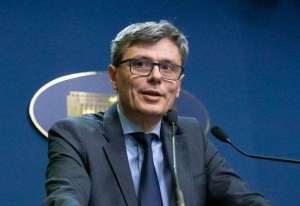Direct foreign investments have an essential contribution to a country's growth and economic development. The local and central public authorities need to be aware of the role of foreign and domestic investments in local and intelligent development, durable and focused on-people.
The privatization of the Romanian companies over the 20 years of market economy has led to numerous controversies over their sale for a pittance, even though they had a huge potential for growth. Still, had they not been privatized, we don't know what kind of future they would have had, or if they had still been owned by the state.
The privatization of the major companies in Romania had positive effects through the horizontal development of certain industries, the creation of parallel investments, the attraction of new investors in the areas where they operate. There have also been created indirect jobs, often times more than in the initial investment.
Mircea Ursache, former president of the AVAS, is convinced that the privatization of the companies has led to a horizontal development. He said: "Dacia represents a successful privatization, due to the permanence of its activity, revenue, and contribution to the state budget. The privatization of Sidex was successful, considering that while it was owned by the state, it was losing 1 million dollars a day (...) Sure we have some good privatizations in the industry as well. About everything that works today under the names of Alro, Mechel, TMK and others. There was a time when the reason for the privatization was a topic of political war. People singled out some failed famous privatizations, mirroring the opinions that we are selling our country for nothing etc".
Gabriel Zbârcea, Managing Partner at law firm Ţuca Zbârcea & Asociaţii, considers that any major investment has a multiplier effect in the economy. He explained: "A successful privatization can indeed generate a horizontal development beneficial for the community in the area and, on a larger angle, positive effects on the economy. The benefits are obvious in terms of the number of jobs created, the transport and infrastructure networks created or rehabilitated, and the community programs which have been initiated".
Dr. Daniela Nemoianu, Executive Partner KPMG in Romania, considers that privatized companies have definitely generated a horizontal development. She explained: "The ancillary development around major companies has been beneficial for the entire economy, leading to a drop in unemployment, to the specialization of the workforce and supporting the economy, by unburdening the state. These corporations have also gotten involved in actions which benefit society, they have been directly involved in the proposals addressed to the government in order to improve the business environment and to develop the legislation in line with the European spirit, and they have contributed to maintaining social dialogue".
The most visible effects of horizontal development were seen in the auto industry. Once Renault arrived at Dacia or Ford arrived at Automobile Craiova, numerous companies related to these investments have announced their presence in the region.
• The Dacia Renault investment
The county of Argeş has evolved due to the investment made by "Dacia Renault" in Mioveni. The economy has seen a significant increase of 3.2 billion lei between 2009-2010. The Dacia Plant, the engine of the county's economy, has propelled the county of Argeş to the top spot due to the sales of cars.
The investment made by "Dacia Renault" has resulted in a series of parallel investments, with almost 100 first rank suppliers, and with a total number of 800 partners. Some of the suppliers brought by Dacia Renault to the territory of Romania are: ACI Romania (makers of chassis) - part of the Renault group, Kalsonic Kalsey Romania (air conditioning systems - Japanese company), Sealynx Automotive Romania, provider of sealing systems for Dacia, which inaugurated its plant in Dirmăneşti, county of Argeş in 2009.
The Renault group currently has over 17,500 employees in Romania. Its main entities are the Dacia plants of Mioveni (the Vehicles Plant, The Mecanical and Chassis part - UMCD, the Logistics Department, including the RIR-ILN center), The Dacia Moulds (Piteşti), Renault Technologie Roumanie (which includes the Titu Technical Center and the design center Renault Design Central Europe) and Renault Commercial Roumanie (including the Oarja Spare Parts Center).
For example, UMCD is the second largest mechanical plant of the Renault group all over the world. It has six manufacturing divisions (Engines, Gearboxes, J-Gearboxes, TL-Gearboxes, Aluminum, Welding/Stamping, Assembly/Cataphoresis/Machine shop). Some of the customers to whom Uzina Mecanică Dacia supplies engines are the Dacia Vehicle Plant (for the Logan and Sandero range) and the Renault plants of France, Russia, Morocco, South Africa, Columbia. UMCD has about 3,800 employees.
Matriţe Dacia is the only entity which makes stamping equipment in the entire Renault Group. Over 30 million Euros have been invested here. The plants of Romania, Morocco, India, Turkey, Slovenia, Argentina, Brazil, France or Spain have already been equipped with machinery designed at Matriţe Dacia. The turnover of Matriţe Dacia, which has 222 employees, exceeded 7.5 million Euros in 2010, and exports represent 90% of it.
Another "offspring" of the Dacia investment is the Titu Technical Center, inaugurated by Renault Technologie Renault, and which has as its goal to develop the new Dacia models.
The Renault group has also built the spare parts and accessories center of Oarja, the largest center for the distribution of spare parts and accessories which the Renault Group has available outside France. The center has over 160 employees and supplies original spare parts to the Dacia, Renault and Nissan network in Romania, as well as supplying every commercial network of Dacia in 33 other countries.
• Every job at the Ford plants of Craiova will generate five more in other companies
Ford estimates that 95% of the car and engine production in Craiova, where approximately 4,000 people work, will be exported.
In the long run, Ford predicts that each job in the plants of Craiova will generate five more in other companies.
For example, American car parts maker Johnson Controls (JC) inaugurated in the beginning of this year, in Craiova, a plant which manufactures seats for Ford vehicles, which will outfit all the B-Max versions. Upon the inauguration of the plant, the authorities said that this investment will significantly increase the development of the Dolj region, having a special impact on the workforce employment rate.
In Romania, JC also owns a plant for the assembly of car seats, five factories for the production of seat components and it has acquired Romanian company Spumotim SA, with its two foam plants. The seat assembly company in Mioveni also works for Dacia. The officials of the company expect that following the opening of the plant, its total number of employees in Romania would exceed 4,500. The subsidiary of Johnson Controls Romania was created in 2002, when it opened a plant in Mioveni, followed by the construction of the production units of Piteşti and Ploieşti in 2004.
Another supplier of Ford is "Kirchhoff Automotive", a maker of car systems and car bodies, which inaugurated a plant in Craiova in spring 2012, and the number of employees is expected to reach 180.
"Kirchhoff Automotive" intends to open a second plant in Romania, next year at the earliest, according to him.
The company's customers include "General Motors", "Ford" and "Dacia".
Other suppliers of Automobile Craiova are: Magna International - maker of bumpers, Faurecia - the company which manufactures the exhaust system for the new Ford B-Max cars, Cooper Standard, which will manufacture the hoses for the transport of gas, Kautex Textron.
Two major Ford suppliers are plastics maker IAC Group Balş and cabling supplier Yazaki. Japanese company Yazaki last year opened a new plant in Romania, in Caracal, following an investment of four million Euros. The unit supplies parts for Ford cars. The plant has about 600 employees, and their number is expected to increase this year by 400-500 employees.
American company "International Automotive Components (IAC)" has invested 58 million Euros in a car parts production unit in Balş, in the county of Dolj and has created 400 jobs, according to CRPCIS. "IAC" is the first supplier in the car industry which has begun the construction "from scratch" of a production unit in Romania, to support the operations of "Ford" in Craiova.
• The clusters are based on industrial concentration in certain geographic areas
In Romania, the clusters, meaning the industrial concentrations, have appeared spontaneously, < from the bottom up >, relying on industrial agglomeration in certain geographic areas.
Cluster Dacia Renault represents the competitiveness pole created around the biggest Romanian carmaker, Dacia. The competitiveness pole was generated by the Association of Romanian Carmakers, ACAROM. A distinctive feature of this competitiveness pole is the existence of the < research cores >, autonomous working groups for industrial research, which treats the main technical and technological issues which the automotive suppliers in Romania have to deal with, proposing innovative applied solutions.
• "OMV Petrom", explosive development through investments of 7.7 billion
In the beginning of the year, OMV Petrom (SNP) had approximately 22,000 employees.
"Petrom" is the largest oil group in South Eastern Europe, with operations in Exploration and Production, Gas and Energy, Refining and Marketing. The group went through a wide ranging process of modernization and streamlining, which was the result of more than 7.7 Euros investments in the last 7 years.
In Romania and Kazakhstan the group exploits proven oil and natural gas reserves of 812 million BOE - Barrel of Oil Equivalent (of which 786 million BOE) and has an annual refining capacity of 4.5 million tons at the end of 2011.
On the market for the distribution of oil products, OMV Petrom is present in Romania, the Republic of Moldova and Serbia, through a network of approximately 800 gas stations, which run under the brands of Petrom and OMV. The trading of oil products in Romania takes place through OMV Petrom Marketing, which is fully owned by OMV Petrom.
For its sustainable development, OMV Petrom has expanded into the electricity market. In this context, OMV Petrom has built a gas-based plant of 860 MW in Brazi and has begun its commercial operations at the wind farm of Dorobanţu, with a capacity of 45 MW.
In 2011, the turnover of the Group was 5,336 million Euros. The EBIT (Earnings Before Interests And Taxes) was 1,165 million Euros.
Petrom also owns two refineries, Arpechim and Petrobrazi, which together have a maximum capacity of 8 million tons a year.
• Arcelor Mittal Sidex, the biggest employer in Galaţi
"Arcelor Mittal Sidex" is the biggest job creator in Galaţi. The company has around 8,000 workers, compared to over 27,000, before the privatization of Sidex in 2001.
At the time of the privatization however, the company was losing 1 million dollars a day, due to the contracts with parasitic companies. Two years after the privatization, the plant turned out a profit, without the owner having made significant investments.
In Romania, ArcelorMittal owns the plants of Galaţi and Hunedoara (the former major metallurgic plants - Sidex Galaţi and Siderurgica Hunedoara), the pipe makers of Roman and Iaşi (Petrotub Roman and Tepro Iaşi), port operator Romportmet Galaţi as well as the local branch of construction company ArcelorMittal Construction.
This year, Linde Gaz Romania, member of the Linde group, has inaugurated a new air separation unit at the metallurgic plant ArcelorMittal Galaţi. The investment exceeds 100 million Euros and is part of the largest contract concluded by the German group with a single customer in Romania. In 2008, the representatives of the two companies signed a long term contract for the supplying of industrial gas.
• Alro, the biggest employer in the county of Olt
Alro SA, with an output of 288,000 metric tons of primary aluminum in 2008, is the largest aluminum maker in Central and Eastern Europe (with the exception of Russia). Alro SA has a significant contribution to the development of the local and national economy.
The aluminum production facilities are located in Slatina and comprise an electrolysis division, processing capabilities, including a foundry, hot and cold rolling mills and an extrusion machine. The company also owns the alumina plant Alum SA of Tulcea.
Aside from being the biggest employer in the county of Olt, Alro is also a major contributor to the social security budget. The company's social responsibility exceeds its 3,500 employees and the 3,000 indirect employees which work for the subcontractor companies.
The Report "Romania: regional investment picture in the years 2011 and 2012", made in April 2012 by former state advisor Andreea Paul, states: "Each local community must promote its strong points and use all its advantages to attract investments which would support the economic growth in the region it belongs to. On a central level, many fall in to the trap of generalization, as they do not know the key-elements of each region. It is part of the attributes of each local community to identify its advantages as best it can and to promote its attractiveness to investors. Each region must unlock its potential and make the best of its local opportunities and the skills of its human resources.
Only those regions which promote their competitive benefits and show determination in investing in infrastructure, in education and in R&D will succeed in dealing with the changes and in improving the life of their citizens. The effects of the investments will be felt by those regions which adapt to the needs of the business sector by developing technological and business parks, business incubators, clusters and competitiveness poles. It is the time to create partnerships, business networks, relationships not just between countries or companies, but between territorial structures as well. The increased number of initiatives from the local communities concerning the investment climate will set the foundation for the competitiveness islands of the Romanian economy in the coming years. The challenge is even greater, because in the next European financial cycle, 2014-2020, the intensity of the regional aid is expected to decrease by the European Commission".
• 477 foreign and domestic investment projects in 2011 and 2012
• Over 16,000 jobs
The value of the foreign and domestic investment projects accomplished in 2011 and stipulated to take place in 2012 in Romania, which are being monitored by the authorities, amount to 2.3 billion Euros. This investment effort has resulted in the creation of 9,300 jobs in 2011. 6,700 more jobs will be created through the investments scheduled for this year.



























































